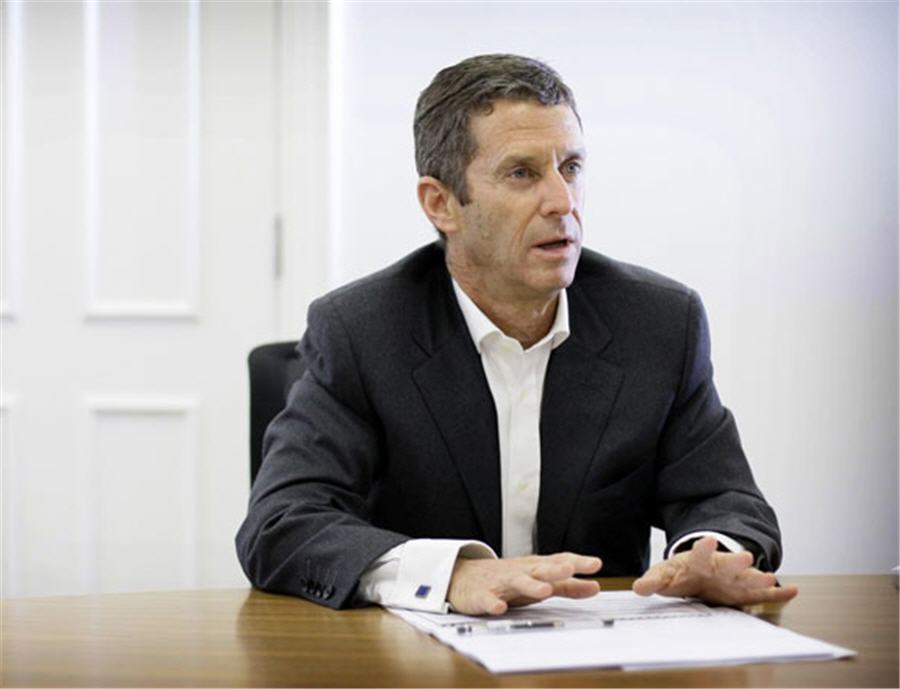Mining tycoon Steinmetz seeks to topple bribery conviction

Israeli mining billionaire Beny Steinmetz began his Swiss court fight to repair his tarnished reputation after a landmark bribery conviction threw the spotlight on an industry dogged by allegations of graft and greed.
The tycoon, who built his fortune as a diamond trader, returned to Geneva for the appeal which began on Monday morning. Seated in the front row of the court in a blue suit and open-necked white shirt, he listened silently as his lawyer Daniel Kinzer opened with a critique of what he said were the fundamental mistakes Swiss judges made in misinterpreting how he won the rights to the Simandou iron ore mine in Guinea.
Steinmetz, 66, was convicted in January 2021 of bribing public officials in Guinea to secure the concession for the vast mountain of ore worth billions of dollars, and was sentenced to five years in prison and ordered to pay a penalty of 50 million Swiss francs ($52 million). The initial trial took place in Geneva as Steinmetz lived there until 2016.
Steinmetz has faced intense scrutiny around the world as the subject of investigations in the US and Israel, where he was briefly detained in 2016. He was held in Greece in December at the request of Romanian authorities following his conviction in Bucharest in 2020 in an unrelated case, before a Greek appeal court lifted the order in March. Steinmetz is appealing the Romanian ruling and said his being detained in Greece was the result of miscommunication by Interpol.
More recently, however, a UK lawsuit between Vale SA and Steinmetz over the rights to the Simandou mine collapsed in February when lawyers for the mining giant said that its allegations were too old to be tried by a London court.
The concession’s previous owner, Rio Tinto Group, lost the rights in 2008 after failing to develop the site and irritating Lansana Conte, Guinea’s president at the time. That created an opening for Steinmetz’s company BSG Resources Ltd., Marc Comina, Steinmetz’s spokesman, said ahead of the trial.
Steinmetz and his local intermediary never bribed Mamadie Toure, Conte’s wife, with $8.5 million to secure the rights, his spokesman said, refuting the court’s findings.
Rather, all payments made to the intermediary and subsequently to Guinean business partners were legitimate and led the way to negotiations with Conte well before BSGR ever got to know Toure, according to Comina.
The testimony from Toure, which was key to Steinmetz’s conviction, should never have been allowed and should now be disregarded, Kinzer argued on Monday morning.
Important questions
The fact that she was invited to cooperate by Guinean and US authorities, who covered all her expenses, the fact we don’t know the terms of her deal with those authorities, and the fact Steinmetz’s defense team was never allowed to question her raises important “questions about the credibility of her testimony,” Kinzer said.
Though he never served a day in a Swiss prison following his conviction because of a deal he negotiated with Swiss authorities in return for testifying in person, the trial is his best chance to clear his name and overturn the decision.
“The list of factual errors made by the criminal court is long,” Comina said on the eve of the appeal. “These are not details but essential elements to the correct understanding of the events that unfolded.”
Because of these mistakes and a flawed thesis the court embraced Steinmetz has been depicted “as a man without scruples, an impostor, liar, corrupter and profiteer, a portrait that corresponds nothing with reality.”
Israel trip
Christian Luescher, a second lawyer for Steinmetz, pressed the court to quiz Claudio Mascotto, the prosecutor in charge of the case, over an undocumented trip he made to Israel to interview a witness.
Yves Bertossa, one of Geneva’s chief prosecutors, responded that even if the trip wasn’t properly documented, it doesn’t mean his colleague was hiding it.
Concerning Toure’s testimony, Bertossa denied the Geneva Prosecutor’s Office failed to follow protocol with its questioning of her as a witness.
The presiding judge will decide on both preliminary questions raised by the defense later on Monday.
(By Hugo Miller)
{{ commodity.name }}
{{ post.title }}
{{ post.date }}




Comments